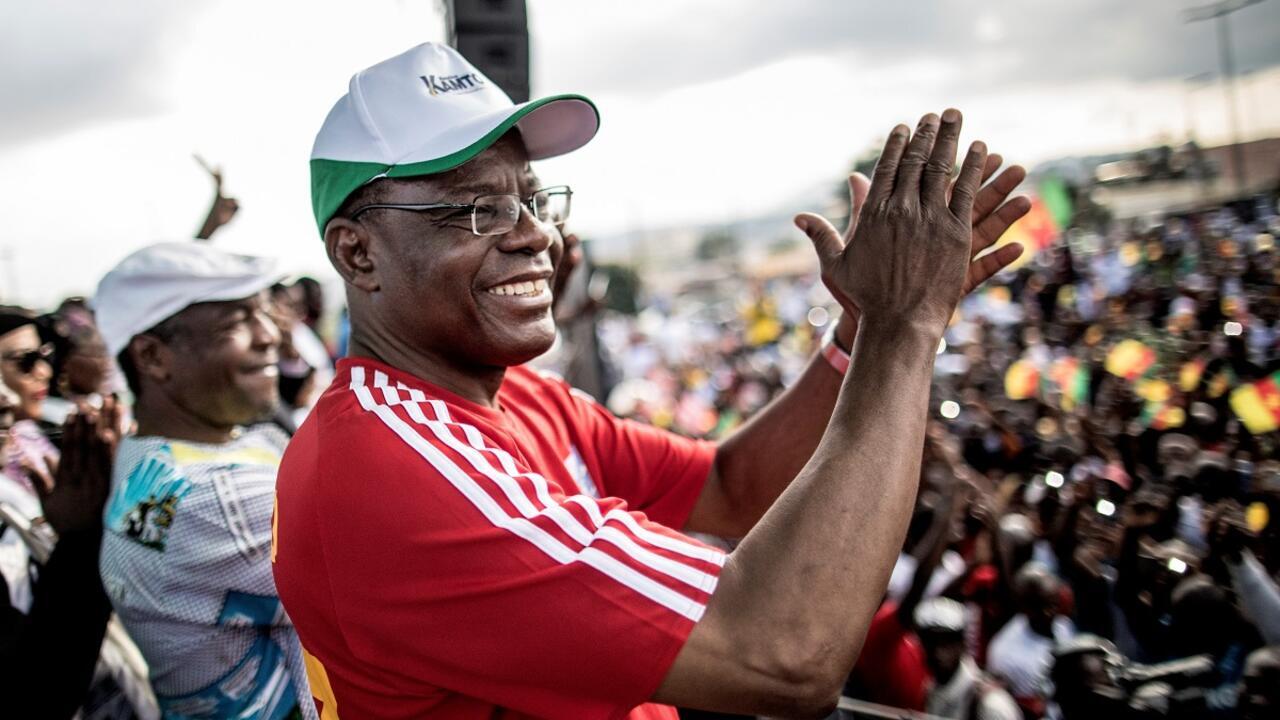
Maurice Kamto, leader of the Cameroonian opposition party Movement for the Rebirth of Cameroon (MRC) is greeted as he arrive on stage in Yaounde, on September 30, 2018 to address a campaign rally for the Presidential Elections. - Cameroon imposed a 48-hour curfew on its English-speaking regions a day ahead of the one-year anniversary of a symbolic "independence" declaration by anglophone separatists, officials said on September 30, 2018. The anniversary comes ahead of October 7, 2018 polls that anglophone secessionists have threatened to disrupt. (Photo by MARCO LONGARI / AFP)
In a Cameroon gripped by fear and tightening state control, opposition leader Maurice Kamto has emerged as a rare figure of defiance as the government intensifies its hold through military appointments, public threats, and the deployment of elite forces while Kamto advances not reactively but deliberately with a commitment to defend the fragments of a republic where governance by fear has become routine
July 2025 underscored a deeply entrenched system of control with the government ramping up military recruitment, appointing loyalists to top army and administrative positions, amplifying hostile rhetoric on national television and mobilising the elite Rapid Intervention Battalion as an internal deterrent to ensure the public sphere remains tightly controlled ahead of the presidential election while even language itself has become a weapon with each statement carefully crafted to instil fear
In this climate Kamto neither seeks to be a martyr nor hides from confrontation as he acts as a lawyer, politician, and citizen wielding words as deliberate acts of resistance in an environment where silence is enforced and speaking out has become defiance while he challenges the manipulation of law to eliminate rivals, opposes the use of security forces to shield power from its people and rejects a model of governance rooted in threats and coercion
Since 2018 Kamto has evolved beyond the role of a presidential contender as he represents a dividing line between a government clinging to survival and a population left with only the law as its weapon while shunning mob politics and unrest he crafts a strategy anchored in civic consciousness and legal precision which the regime finds difficult to counter without exposing its authoritarian nature
For Kamto the stakes transcend electoral victory as his campaign is about thwarting a systematic attempt to sideline democracy through intimidation and in a nation weary from forty three years under the same regime Kamto stands as a reminder that change is a right not a rebellion and that in the face of fear the ballot remains the people’s most powerful weapon



